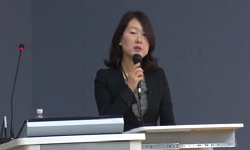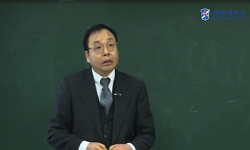Term limits that effectively govern leadership transition play an important role in authoritarian power sharing. A fixed term and a pre-appointed successor – two crucial components of term limits – credibly commit the incumbent ruler to share powe...
http://chineseinput.net/에서 pinyin(병음)방식으로 중국어를 변환할 수 있습니다.
변환된 중국어를 복사하여 사용하시면 됩니다.
- 中文 을 입력하시려면 zhongwen을 입력하시고 space를누르시면됩니다.
- 北京 을 입력하시려면 beijing을 입력하시고 space를 누르시면 됩니다.
부가정보
다국어 초록 (Multilingual Abstract)
Term limits that effectively govern leadership transition play an important role in authoritarian power sharing. A fixed term and a pre-appointed successor – two crucial components of term limits – credibly commit the incumbent ruler to share power with other elites, and also allow the elites to monitor and coordinate against the ruler's transgression of the power-sharing agreement. While the successful adoption of term limits often requires an even balance of power among the ruling elites in the first place, once adopted it initiates an evolving bargain over allocation of political power among multiple generations of leaders that further keeps any one faction from dominating the others. I corroborate this argument using a biographical dataset of elite members of the Chinese Communist Party from 1982 to 2012. The findings suggest that the Party's incumbent leaders and their rivals (i.e., predecessor and heir-apparent) shared equal chances in promoting their associates—which proxy their political influence—and this pattern has become more salient since the 16th party congress, when the term limits that currently govern China's leadership transition became fully fledged. This result also sheds light on the role of informal, patronage-based promotion in the institutionalization of authoritarian politics.
참고문헌 (Reference)
1 Shih, Victor, "‘Nauseating’ Displays of Loyalty: Monitoring the Factional Bargain Through Ideological Campaigns in China" 70 (70): 1177-1192, 2008
2 Xi, Jinping, "Zhijiang Xinyu" Zhejiang People’s Press 2007
3 Li, Cheng, "Xi Jinping’s Inner Circle (Part 2: Friends from Xi’s Formative Years)" 44 : 2014
4 Rawski, Thomas, "What is happening to China’s GDP statistics?" 12 (12): 347-354, 2001
5 Geddes, Barbara, "What do we Know about Democratization after Twenty Years?" 2 (2): 115-144, 1999
6 Magaloni, Beatriz, "Voting for Autocracy: Hegemonic Party Survival and its Demise in Mexico" Cambridge University Press 2006
7 Lorentzen, Peter, "Undermining Authoritarian Innovation: The Power of China’s Industrial Giants" 76 (76): 195-214, 2014
8 Kung, James, "The Tragedy of the Nomenklatura: Career Incentives and Political Radicalism during China’s Great Leap Famine" 105 (105): 27-45, 2011
9 Shirk, Susan, "The Succession Game" The Woodrow Wilson Center Asia Program 5-9, 2002
10 Pye, Lucian, "The Spirit of Chinese Politics" Harvard University Press 1992
1 Shih, Victor, "‘Nauseating’ Displays of Loyalty: Monitoring the Factional Bargain Through Ideological Campaigns in China" 70 (70): 1177-1192, 2008
2 Xi, Jinping, "Zhijiang Xinyu" Zhejiang People’s Press 2007
3 Li, Cheng, "Xi Jinping’s Inner Circle (Part 2: Friends from Xi’s Formative Years)" 44 : 2014
4 Rawski, Thomas, "What is happening to China’s GDP statistics?" 12 (12): 347-354, 2001
5 Geddes, Barbara, "What do we Know about Democratization after Twenty Years?" 2 (2): 115-144, 1999
6 Magaloni, Beatriz, "Voting for Autocracy: Hegemonic Party Survival and its Demise in Mexico" Cambridge University Press 2006
7 Lorentzen, Peter, "Undermining Authoritarian Innovation: The Power of China’s Industrial Giants" 76 (76): 195-214, 2014
8 Kung, James, "The Tragedy of the Nomenklatura: Career Incentives and Political Radicalism during China’s Great Leap Famine" 105 (105): 27-45, 2011
9 Shirk, Susan, "The Succession Game" The Woodrow Wilson Center Asia Program 5-9, 2002
10 Pye, Lucian, "The Spirit of Chinese Politics" Harvard University Press 1992
11 Deng, Xiaopig, "The Selected Works of Deng Xiaoping, Vol. 3" People’s Publisher 1993
12 Svolik, Milan, "The Politics of Authoritarian Rule" Cambridge University Press 2012
13 Shirk, Susan, "The Political Logic of Economic Reform in China" University of California Press 1993
14 Weingast, Barry, "The Political Foundations of Democracy and the Rule of the Law" 91 (91): 245-263, 1997
15 Miller, Alice, "The Politburo Standing Committee under Hu Jintao" 35 : 2011
16 Meyer, David, "The Performance of Various Factions Indicators" University of California 2015
17 Haber, Stephan., "The Oxford Handbook of Political Economy" Oxford University Press 693-707, 2007
18 Mulvenon, James, "The New Central Military Commission" 40 : 2013
19 Kung, James, "The Mystery of Authoritarian Growth: Land Revenue and the Career Concerns of China’s Local Leaders" HKUST 2013
20 Bueno de Mesquita, Bruce, "The Logic of Political Survival" MIT press 2003
21 Mulvenon, James, "The King Is Dead! Long Live the King! TheCMCLeadership Transition from Jiang to Hu" 13 : 2005
22 Boix, Carles, "The Foundations of Limited Authoritarian Government: Institutions, Commitment, and Power-Sharing in Dictatorships" 75 (75): 300-316, 2013
23 Hardin, Russell, "The Federalist Papers and the New Institutionalism" Agathon 100-120, 1989
24 Pye, Lucian, "The Dynamics of Factions and Consensus in Chinese Politics" Rand Corporation 1980
25 Myerson, Roger, "The Autocrat’s Credibility Problem and Foundations of the Constitutional State" 102 (102): 125-139, 2008
26 Fewsmith, Joseph, "The 16th Party Congress: Implications for Understanding Chinese Politics" 5 : 2003
27 Miller, Lyman, "The 16th Party Congress and China’s Political Processes" The Woodrow Wilson Center Asia Program 10-14, 2002
28 Burns, John. P, "Strengthening Central CCP Control of Leadership Selection: the 1990 Nomenklatura" 138 : 458-491, 1994
29 Edin, Maria, "State Capacity and Local Agent Control in China: CCP Cadre Management from a Township Perspective" 173 : 35-52, 2003
30 Lü, Xiaobo, "Show Me the Money: Interjurisdiction, Political Competition and Fiscal Extraction in China" 108 (108): 706-722, 2014
31 Manion, Melanie, "Retirement of revolutionaries in China: Public policies, Social Norms, Private Interests" Princeton University Press 1993
32 Truex, Rory, "Representation within Bounds" Yale University 2014
33 Whiting, Susan, "Power and Wealth In Rural China: The Political Economy of Institutional Change" Cambridge University Press 2001
34 Svolik, Milan, "Power Sharing and Leadership Dynamics in Authoritarian Regimes" 53 (53): 477-494, 2009
35 Manion, Melanie, "Politics and Policy in Post-Mao Cadre Retirement" 129 : 1-25, 1992
36 Li, Hongbin, "Political Turnover and Economic Performance: the Incentive Role of Personnel Control in China" 89 (89): 1743-1762, 2005
37 Jia, Ruixue, "Political Selection in China: The Complementary Roles of Connections and Performance" IFN 2014
38 Magaloni, Beatriz, "Political Order and One-Party Rule" 13 : 123-143, 2010
39 Carey, John. M., "Parchment, Equilibria, and Institutions" 33 (33): 735-761, 2000
40 Adolph, Christopher, "Paper autonomy, private ambition: Theory and evidence linking central bankers’careers and economic performance" 2003
41 Malesky, Edmund, "Nodding or Needling: Analyzing Delegate Responsiveness in an Authoritarian Parliament" 104 (104): 482-502, 2010
42 Keller, Franziska, "Moving beyond factions: using Social Network Analysis to uncover patronage networks among Chinese elites" University of California 2015
43 Pan, Jennifer, "Measuring the Goals and Incentives of Local Chinese Officials" Harvard University 2013
44 King, Gary, "Making the Most of Statistical Analyses: Improving Interpretation and Presentation" 44 (44): 347-361, 2000
45 Debs, Alexander, "Living by the Sword and Dying by the Sword? Leadership Transitions in and out of Dictatorships"
46 Smith, Benjamin, "Life of the Party: The Origins of Regime Breakdown and Persistence under Single-Party Rule" 57 (57): 421-451, 2005
47 Lu, Fengming, "Keep Silent and Make a Big Fortune: How Appearances in Partially Free Media Affect an Authoritarian Intra-Elite Election" 2015
48 Wallace, Jeremy, "Juking the Stats? Authoritarian Information Problems in China" 46 : 11-29, 2016
49 Svolik, Milan, "Incentives, Institutions, and the Challenges to Research on Authoritarian Politics"
50 Miller, Alice, "Hu Jintao and the Party Politburo" 9 : 2004
51 Whiting, Susan, "Holding China Together: Diversity and National Integration in the Post-Deng Era" Cambridge University Press 101-119, 2004
52 Brownlee, Jason, "Hereditary Succession in Modern Autocracies" 59 (59): 595-628, 2007
53 Shih, Victor, "Getting Ahead in the Communist Party: Explaining the Advancement of Central Committee Members in China" 106 (106): 166-187, 2012
54 Malesky, Edmund, "Gerrymandering—Vietnamese style: Escaping The Partial Reform Equilibrium in a Nondemocratic Regime" 71 (71): 132-159, 2009
55 Shih, Victor, "Gauging the Elite Political Equilibrium in the CCP: A Quantitative Approach Using Biographical Data" 201 : 79-103, 2010
56 Shih, Victor, "Factions and Finance in China: Elite Conflict and Inflation" Cambridge University Press 2008
57 Bo, Zhiyue, "Economic Performance and Political Mobility: Chinese Provincial Leaders" 5 (5): 135-154, 1996
58 Lü, Xiaobo, "Does Performance Matter? Evaluating the Institution of Political Selection along the Chinese Administrative Ladder" 2014
59 Albertus, Michael, "Dictators as Founding Fathers? The Role of Constitutions under Autocracy" 24 (24): 279-306, 2012
60 Egorov, Georgy, "Dictators and their Viziers: Endogenizing the Loyalty–Competence Trade-Off" 9 (9): 903-930, 2011
61 Kokkonen, Andrej, "Delivering Stability—Primogeniture and Autocratic Survival in European Monarchies 1000–1800" 108 (108): 438-453, 2014
62 Landry, Pierre, "Decentralized Authoritarianism in China" Cambridge University Press 2008
63 Magaloni, Beatriz, "Credible Power-Sharing and the Longevity of Authoritarian Rule" 41 (41): 715-741, 2008
64 Gandhi, Jennifer, "Cooperation, Cooptation, and Rebellion under Dictatorships" 18 (18): 1-26, 2006
65 Dittmer, Lowell, "Chinese Informal Politics" 34 : 1-34, 1995
66 Guo, Gang, "China’s Local Political Budget Cycles" 53 (53): 621-632, 2009
67 Li, Cheng, "China’s Leaders: The New Generation" Rowman & Littlefield Publishers 2001
68 Huang, Jing, "China’s Changing Political Landscape: Prospectus for Democracy" The Brookings Institution Press 80-97, 2008
69 Sheng, Yumin, "Central–Provincial Relations at the CCP Central Committees: Institutions, Measurement and Empirical Trends, 1978–2002" 182 : 338-355, 2005
70 Jason Brownlee, "Bound to Rule: Party Institutions and Regime Trajectories in Malaysia and the Philippines" 동아시아연구원 8 (8): 89-118, 2008
71 Shih, Victor, "Biographical Data of Central Committee Members: First to Sixteenth Party Congress [Dataset]"
72 Adolph, Christopher, "Bankers, Bureaucrats, and Central Bank Politics: The Myth of Neutrality" Cambridge University Press 2013
73 Nathan, Andrew, "Authoritarian resilience" 14 (14): 6-17, 2003
74 Manion, Melanie, "Authoritarian Parochialism: Local Congressional Representation in China" 218 : 311-338, 2014
75 Shirk, Susan, "Age of China’s New Leaders May Have Been Key to Their Selection"
76 Escribà-Folch, Abel, "Accountable for what? Regime types, performance, and the fate of outgoing dictators, 1946–2004" 20 (20): 160-185, 2013
77 Nathan, Andrew, "A Factionalism Model for CCP Politics" 53 : 34-66, 1973
동일학술지(권/호) 다른 논문
-
CIRCULATION OF THE ELITE IN THE CHINESE COMMUNIST PARTY
- 동아시아연구원
- David Meyer
- 2016
- KCI등재,SCOPUS,SSCI
-
- 동아시아연구원
- Franziska Barbara Keller
- 2016
- KCI등재,SCOPUS,SSCI
-
- 동아시아연구원
- Brian Efird
- 2016
- KCI등재,SCOPUS,SSCI
-
KEEPING YOUR HEAD DOWN: PUBLIC PROFILES AND PROMOTION UNDER AUTOCRACY
- 동아시아연구원
- Dimitar D. Gueorguiev
- 2016
- KCI등재,SCOPUS,SSCI
분석정보
인용정보 인용지수 설명보기
학술지 이력
| 연월일 | 이력구분 | 이력상세 | 등재구분 |
|---|---|---|---|
| 2023 | 평가예정 | 해외DB학술지평가 신청대상 (해외등재 학술지 평가) | |
| 2020-01-01 | 평가 | 등재학술지 유지 (해외등재 학술지 평가) |  |
| 2010-01-01 | 평가 | SSCI 등재 (등재유지) |  |
| 2007-09-05 | 학회명변경 | 영문명 : East Aisa Institute -> East Asia institute |  |
| 2007-01-01 | 평가 | 등재학술지 선정 (등재후보2차) |  |
| 2006-07-04 | 학술지명변경 | 외국어명 : 미등록 -> Journal of East Asian Studies |  |
| 2006-01-01 | 평가 | 등재후보 1차 PASS (등재후보1차) |  |
| 2004-01-01 | 평가 | 등재후보학술지 선정 (신규평가) |  |
학술지 인용정보
| 기준연도 | WOS-KCI 통합IF(2년) | KCIF(2년) | KCIF(3년) |
|---|---|---|---|
| 2016 | 0.4 | 0.1 | 0.4 |
| KCIF(4년) | KCIF(5년) | 중심성지수(3년) | 즉시성지수 |
| 0.38 | 0.34 | 0.622 | 0 |







 KCI
KCI




